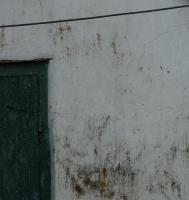Abstract
This contribution presents and evaluates a new learning environment model based on Web 2.0 applications. We assume that the technological change introduced by Web 2.0 tools has also caused a cultural change in terms of dealing with types of communication, knowledge and learning. The answers given by eLearning scholars who intend to use the creative options offered by Web 2.0 in institutional learning are summarised in the first part of the paper. In this theoretical overview we introduce the concepts of eLearning 2.0 and Personal Learning Environments, along with their main aspects of autonomy, creativity and networking, and relate them to the didactics of constructivism and connectivism. The requirements and basic functional components for the development of our particular Web 2.0 learning environment are derived from these.
The learning environment we present consists of several components (modules) that are well-known Web 2.0 applications such as wikis, weblogs, social bookmarking services and RSS feeds. The section describing the implementation of the environment in a use case at the Darmstadt University of Applied Science focuses on the specific didactic contribution the particular learning modules render towards the entire learning arrangement. The article explains the didactic potential of the wiki platform in more detail, since it serves as the integrating module (or learning centre) of the learning arrangement.
Our learning environment was tested and evaluated during the “Social Software” seminar held in the information science study course at Darmstadt University of Applied Science in 2007/08. A questionnaire-based survey reveals interesting facts regarding the success of the practical implementation of the Web 2.0 arrangement with respect to the motivation and learning outcome of students. The survey was supplemented with some non-formalized feedback in a concluding discussion. With these results in mind this paper finally provides some remarks on the potential of the learning environment in broader educational contexts.
Links and resources
Tags
community
@antares's tags highlighted
- e-learning
- praxisbericht
- darmstadt
- konstruktivistischer_ansatz
- fachhochschule
- lernumgebung
- soziale_software
- deutschland
- internetgestützter_unterricht
- web2.0
- evaluation
- platform
- 2009
- internetgest�tzter_unterricht
- _todo
- connectivism
- socialsoftware
- seminar
- konstruktivismus
- kapitel4
- hda
- einsatziuk
- education
- constructivism
- beispiel
- elearning2.0
- usecase
- elearning






